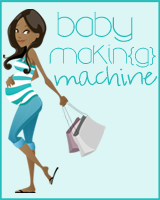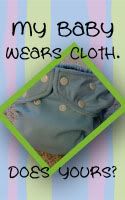Here are some of the benefits and facts to breastfeeding for both children and mothers, from the American Academy of Pediatrics and Best for Babes Foundation.
Babies/Children
- Less likely to contract infectious illnesses such as diarrhea, respiratory infections, otitis media, staph bacterial, viral and urinary tract infections
- Lower risk of SIDS and post neonatal death, helps regulate breathing
- Less risk of inflammatory bowel disease
- Have better visual acuity, neurological development and long term cardiovascular health, including cholesterol levels
- Are less likely to develop obesity, asthma, eczema, diabetes, lymphoma, childhood leukemia, Hodgkin's disease,
- Are less likely to show language and motor skill delays
- Score higher on cognitive tests at school age and into young adulthood
- Have fewer cavities and are less likely to need braces
- Reduces girls' lifetime risk of developing breast cancer by as much as 25%
- Helps mature baby's digestive system, makes stomach lining approximately 15 times thicker than formula fed babies thus allowing them them to absorb food quicker and grow better
- Helps develop baby's immune system by providing healthy bacteria, antibodies, white blood cells, antimicrobials, cell wall protectors
- Breast milk contains the perfect amount of fat, carbs and protein; as your child grows, breast milk changes to accommodate baby's nutritional needs, even during times of illness when hydration is crucial
- Breast milk helps calm babies, serves as a pain reliever and soother (vaccinations) and induces sleep all which are critical for proper neurological development
- Breastfed babies are better eaters as toddlers because milk is flavored with what the mother eats, introducing flavors to babies before they even take their first bite of solid food
- Children are better able to cope with stressful situations later in life because of learned self-soothing and self-regulating skills, both of which are social and emotional development tools
- Breast milk is more easily digested which leads to less spit-up, stomach discomfort and constipation
- Human breasts can detect even 1 degree of change in your baby and heat up or cool down to adjust to a perfect incubation temperature for baby when spending skin-to-skin contact time; in turn baby will expend fewer calories trying to regulate their body temperature
- Grown children needing organ transplants from their mother or siblings have a better acceptance rate
- Increased vaccine effectiveness
- Helps pass meconium
- Enjoy quicker recovery from childbirth with less of a risk of postpartum bleeding
- Are more likely to return to their pre-pregnancy weight and less likely to develop long term obesity
- Have a reduced risk of anemia
- Are less likely to develop Osteoporosis, Ovarian and Premenopausal Breast Cancer
- Are calmer, sleep better and have a lower risk of developing Postpartum Depression due to released oxytocin - Dads sleep better too!
- Dirty diapers from breastfed babies don't smell as bad
- Breast milk can be left at room temperature for several hours rather than being rushed to the refrigerator due to the antimicrobials it contains
- Breastfeeding promotes bonding between mother and baby
- Breast milk is readily available and is served from mom at the perfect temperature every time
- Breast milk is free! Or it can be purchased through milk banks (adoptions etc.)
- Spend less time and money on doctor visits
- No recalls, just observance by the mother of what she puts into her body
- Form follows function - feeding human infants is the function breasts and breast milk were designed to perform
Wishing you a pot o' gold, and all the joy your heart can hold. Thanks for reading!





































